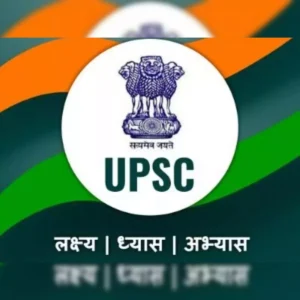The Union Public Service Commission (UPSC) is one of the most prestigious organizations in India, known for its rigorous recruitment process and the elite cadre of civil servants it produces. Aspiring to work in UPSC jobs is a dream shared by millions, yet only a few achieve it due to the competitive nature of the selection process. In this article, we’ll dive deep into the UPSC jobs and recruitment process, providing you with a step-by-step guide to help you navigate the journey.

Latest UPSC Jobs
What is UPSC?
The Union Public Service Commission (UPSC) is India’s central agency responsible for conducting various examinations for appointments to the All India Services, Central Services, and various Group A and Group B posts. Established under the Indian Constitution, it ensures a transparent and merit-based recruitment process.
Popular UPSC Exams
UPSC conducts several examinations throughout the year, catering to various fields. Here are some of the most sought-after UPSC exams:
- Civil Services Examination (CSE): This includes recruitment for IAS, IPS, and IFS roles.
- Engineering Services Examination (ESE): Aimed at hiring engineers for technical posts in the government.
- Combined Defence Services (CDS) Examination: For aspirants seeking a career in the armed forces.
- National Defence Academy (NDA) and Naval Academy Examination: For young candidates aspiring to join the defence forces after 10+2.
- Indian Economic Service (IES) and Indian Statistical Service (ISS) Examination: For economists and statisticians.
Eligibility Criteria for UPSC Jobs
Before applying, it’s crucial to understand the eligibility criteria for UPSC exams. These include:
1. Educational Qualifications
- A bachelor’s degree from a recognized university is typically required. Specific posts may demand specialized degrees.
2. Age Limit
- The general age range is 21 to 32 years for most exams, with relaxations for reserved categories:
- OBC: 3 years
- SC/ST: 5 years
- Persons with Disabilities (PWD): Up to 10 years
3. Nationality
- Must be an Indian citizen for IAS, IPS, and IFS. Other services allow candidates from certain neighboring countries under specific conditions.
Stages of the UPSC Recruitment Process
The recruitment process varies depending on the examination, but most UPSC exams follow a similar pattern:
1. Preliminary Examination
- This is the first stage and acts as a screening test.
- Consists of two objective papers:
- General Studies Paper I: Tests general awareness.
- CSAT (Paper II): Focuses on logical reasoning, aptitude, and comprehension.
- Only candidates who qualify for the preliminary rounds move on to the mains.
2. Main Examination
- A comprehensive written exam with multiple papers, including:
- Essay Writing
- General Studies (4 papers)
- Optional Subject Papers (2 papers)
- Marks obtained in the mains are crucial for the final merit list.
3. Interview (Personality Test)
- The final stage assesses candidates’ personality, decision-making skills, and knowledge.
- The interview panel consists of experts who gauge the aspirant’s suitability for administrative roles.
Tips to Crack UPSC Exams
Given the tough competition, proper preparation is key. Here are some tips to ace UPSC exams:
1. Understand the Syllabus
- The UPSC syllabus is vast, so it’s essential to focus on the most important topics. Download and analyze the official syllabus before starting your preparation.
2. Consistent Study Routine
- Allocate specific hours daily for preparation. Consistency is more effective than sporadic, intense study sessions.
3. Choose the Right Optional Subject
- Pick a subject you’re comfortable with and passionate about. This will boost your performance in the optional papers.
4. Practice Previous Year Question Papers
- Solve past question papers to understand the exam pattern and types of questions asked.
5. Mock Tests and Time Management
- Regular mock tests will improve your speed and accuracy. It’s also an excellent way to identify weak areas.
Career Opportunities in UPSC Jobs
Once you clear the UPSC exams, a plethora of career opportunities await you. Here are some top roles:
1. Indian Administrative Service (IAS)
- Handles policy formulation, implementation, and administrative tasks.
2. Indian Police Service (IPS)
- Ensures law and order, manages public safety, and combats crime.
3. Indian Foreign Service (IFS)
- Represents India internationally and manages diplomatic relations.
4. Engineering and Technical Services
- Includes roles in the Indian Railway Services, Central Water Engineering, and more.
Why are UPSC Jobs So Prestigious?
The allure of UPSC jobs stems from several factors:
- Job Security: These are stable government positions.
- Financial Benefits: Attractive pay scales, allowances, and perks.
- Social Status: UPSC roles are highly respected in Indian society.
- Opportunity to Serve the Nation: A chance to contribute to nation-building and make a tangible difference.
Challenges of the UPSC Recruitment Process
While the benefits are immense, the journey to securing a UPSC job isn’t without its challenges:
- Intense Competition: Lakhs of candidates for a few hundred positions.
- Demanding Syllabus: Covers a wide array of subjects.
- Mental Pressure: Requires resilience and strong willpower to succeed.

